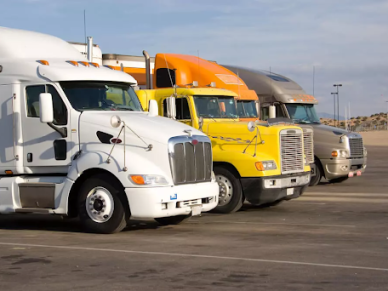
In the bustling world of logistics and transportation, the proper regulation and monitoring of commercial vehicles are crucial to maintaining safety and accountability. At the heart of this regulatory framework are the DOT MC numbers, Dispatch Service, essential identifiers that play a pivotal role in the operations of transportation companies. These numbers are not just bureaucratic requirements; they are foundational elements that ensure compliance, safety, and the seamless movement of goods across the country.
Understanding MC and DOT Numbers
MC (Motor Carrier) and DOT (Department of Transportation) numbers are unique identifiers assigned to commercial vehicles and operators. The DOT number is issued by the Federal Motor Carrier Safety Administration (FMCSA) and is mandatory for companies operating commercial vehicles transporting passengers or hauling cargo in interstate commerce. It serves as a tracking mechanism for safety information and compliance history.
The MC number, on the other hand, specifically applies to companies that transport regulated commodities in interstate commerce. This number authorizes carriers to engage in interstate transportation and is essential for businesses that wish to operate across state lines with regulated goods.
Obtaining MC and DOT Numbers
To obtain these numbers, transportation companies must register with the FMCSA and complete the Unified Registration System (URS) application. This process requires the submission of detailed company information, including vehicle data, operational scope, and proof of insurance. The registration process ensures that only qualified and compliant operators receive authorization to operate, thus enhancing the overall safety of the transportation sector.
Promoting Safety and Accountability
The primary purpose of MC and DOT numbers is to promote safety and accountability within the transportation industry. These identifiers are integral to the regulatory compliance framework, ensuring that only safe and properly maintained vehicles are on the road. The FMCSA uses these numbers to monitor and enforce safety standards, tracking vehicle inspections, crash investigations, and compliance reviews.
Moreover, MC and DOT numbers facilitate transparency and accountability. They allow regulatory authorities to hold carriers accountable by maintaining a comprehensive database of their operational safety records. This database is accessible to the public, enabling shippers, insurers, and other stakeholders to verify the safety history of carriers before engaging in business.
Importance in Regulatory Compliance
Maintaining proper MC and DOT numbers is critical for regulatory compliance. Companies that fail to comply with registration requirements can face severe penalties, including fines and the suspension of operations. Proper registration ensures that transportation companies adhere to federal safety standards, thus reducing the risk of accidents and enhancing the safety of both the public and industry workers.
Benefits of Maintaining MC and DOT Numbers
For transportation companies, the benefits of maintaining accurate and up-to-date MC and DOT numbers are manifold. These numbers provide a framework for accountability, ensuring that companies maintain high safety standards and comply with federal regulations. This compliance not only safeguards the company’s reputation but also builds trust with clients and partners, who value working with reliable and responsible carriers.
Furthermore, having these numbers facilitates smoother operations across state lines, as they simplify the regulatory requirements for interstate commerce. Companies can expand their operational reach and explore new business opportunities with confidence, knowing they meet all necessary legal obligations.
Conclusion
In conclusion, MC and DOT numbers are more than just regulatory requirements; they are critical tools that enhance safety and accountability in the transportation industry. By ensuring compliance with safety standards and providing a mechanism for monitoring and enforcement, these numbers help protect all stakeholders involved in the transportation process. For companies, maintaining proper MC and DOT numbers is essential for operational success and credibility in a competitive marketplace.













Leave a Reply